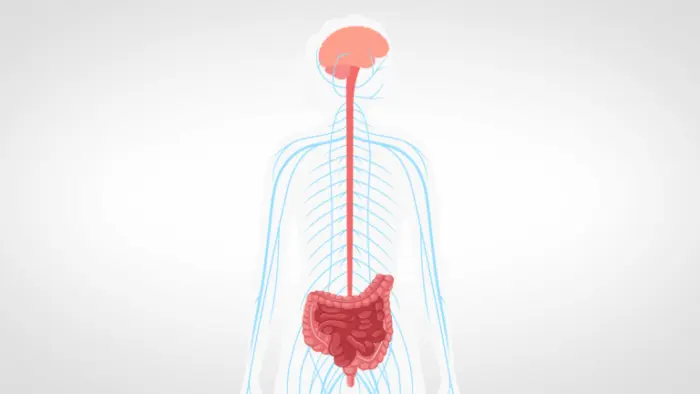Have you ever wondered whether your gut actually ages? The answer is surprisingly reassuring: your intestines don't age in the way you might think! The smooth muscles in your gut remain active for decades, always in constant motion—sometimes slowing, sometimes speeding up—which helps keep everything working well.

What Happens When Your Gut Microflora Is Out of Balance?
Your intestines are a vast ecosystem, home to over 100 trillion bacteria! When this delicate balance is disrupted, the consequences can include:
- Absorption problems: dry skin, brittle nails, sticky stool
- Sluggish detoxification: skin rashes, unpleasant odors from sweat, urine, or stool
- Cellular aging: saggy skin, dull complexion, feeling lethargic
The Brain-Gut Axis: Who's in Charge?
The brain and intestines are closely connected. Scientists call this the "brain-gut axis," and signals go both ways:
A bad mood or stress can upset your digestion (think about how anxiety can send you running to the bathroom). An imbalance in your gut flora can also affect your emotions, making you feel restless, apathetic, or irritable.
Your gut is not just a digestive organ. It's like a 'second brain' that can synthesize neurotransmitters like serotonin—the so-called happiness hormone!
What You Can Do to Protect and Rejuvenate Your Gut
- Eat a variety of fiber-rich foods (fruits, vegetables, whole grains) to keep your friendly bacteria happy
- Limit antibiotics and processed foods—they can damage gut diversity
- Eat fermented foods like yogurt, kefir, sauerkraut, or kimchi to bring more beneficial bacteria into your gut
- Manage stress with mindfulness, yoga, or deep breathing
- Stay hydrated so your intestines work regularly and can efficiently detox your body
Final Thoughts
Taking care of your gut isn't just about digestion—it's the secret to a glowing complexion, balanced mood, and vibrant energy. Respect and nurture your gut ecosystem to support your body from the inside out for a lifetime.



